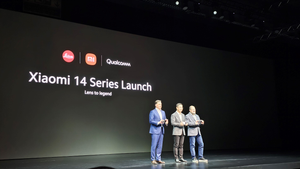Eurobites: Telefónica moves into climate-risk sector
Also in today's EMEA regional roundup: TalkTalk acquires Shell Energy broadband customers; Breko unimpressed by 'lukewarm compromise' on GIA; VMO2 launches 2-gig residential service.

Telefónica has entered what it calls the "climate-risk sector" with an unspecified-amount investment in Mitiga, the company behind EarthScan, a software platform used by businesses to analyze their exposure to extreme weather events. The Spanish operator says it is investing in Mitiga because its flagship product "fits with the Group's strategy of sustainable digitalisation and protecting the value of its physical assets from the growing risks of natural disasters." The two companies say they have already started working together in different industry sectors.
UK broadband provider TalkTalk has bought around 480,000 Shell Energy broadband customers in a deal with Octopus Energy, now Britain's largest electricity supplier. As City A.M. reports, Octopus acquired Shell Energy Retail UK and Germany in December after Shell decided to exit the UK energy and telecom supply businesses. In a statement, TalkTalk said: "Shell Energy Broadband has been a longstanding wholesale customer of TalkTalk, with services offered through the company's unique national network platform, and that relationship will now continue." In November of last year, UK communications regulator Ofcom fined Shell Energy Broadband £1.4 million (US$1.7 million) for failing to properly notify its customers that they were coming to the end of their contracts and alert them to potential savings from alternative tariffs.
Breko, the German broadband association, has dismissed an agreement reached this week on the EU's forthcoming Gigabit Infrastructure Act as a "lukewarm compromise that fails to significantly facilitate the mobile and fibre network roll-out in Europe." Breko was particularly scathing about the four-month deadline proposed for "tacit approval" permit-granting procedures, pointing out that the deadline is "even less strict" than the current German regulation of three months. (See Eurobites: ETNO et al rage again over GIA and Eurobites: Telco lobby wants certainty on GIA.)
Sky, the UK-based purveyor of pay-TV and more, is to raise prices by an average of 6.7% from April 1, though it says it will freeze the price of its broadband and mobile "social tariffs." In a placatory-sounding blog, Sky's chief operating officer, Devesh Raj, points out that unlike most of its main rivals Sky was not in the habit of tying its price increases to the current rate of inflation-plus-3.9%, a practice that BT, for one, used to favor but has now promised to end.
Separately, Sky has agreed a TV streaming deal with Truespeed, a broadband provider based in southwest England. Under the terms of the agreement, Truespeed customers will be able to subscribe to a Sky Stream package that offers both Sky Entertainment and Netflix in one combined service costing from £23 ($29) per month, for 18 months.
Virgin Media O2 has launched Gig2, a 2Gbit/s residential broadband service – the first such service, it claims, from any major UK provider. The operator is also introducing symmetrical download and upload speeds on its full-fiber footprint across all product tiers. Gig2 is powered by XGS-PON technology and will run on a network controlled by Nexfibre, the wholesale joint venture owned by InfraVia Capital Partners, Liberty Global and Telefónica.
The respective Spanish units of Orange, Telefónica and Vodafone have launched two new API services intended to help developers tackle online fraud and protect the digital identities of mobile customers as part of the global GSMA Open Gateway initiative. According to the GSMA, these APIs will allow developer teams and partners to create "new intelligent layers of customer authentication, verification, and security" within mobile networks.
The UK government has announced it is giving a total of £22 million ($27.8 million) in extra funding to two recently created chip technology research centers, one in Southampton and the other in Bristol. Specifically, the cash will be used to boost research into silicon photonics and compound semiconductors. A further pot of funding, £4.8 million for 11 semiconductor skills projects across the UK, was also announced.
Sparkle, the international services arm of Telecom Italia (TIM), has expanded its network footprint to Iraq, courtesy of a new point-of-presence (PoP) in Erbil. The PoP draws on Novel Point's data center and Seabone, Sparkle's Tier 1 global IP backbone, to deliver Internet connectivity services to the Iraqi market as well as to neighboring countries.
Read more about:
EuropeAbout the Author(s)
You May Also Like












